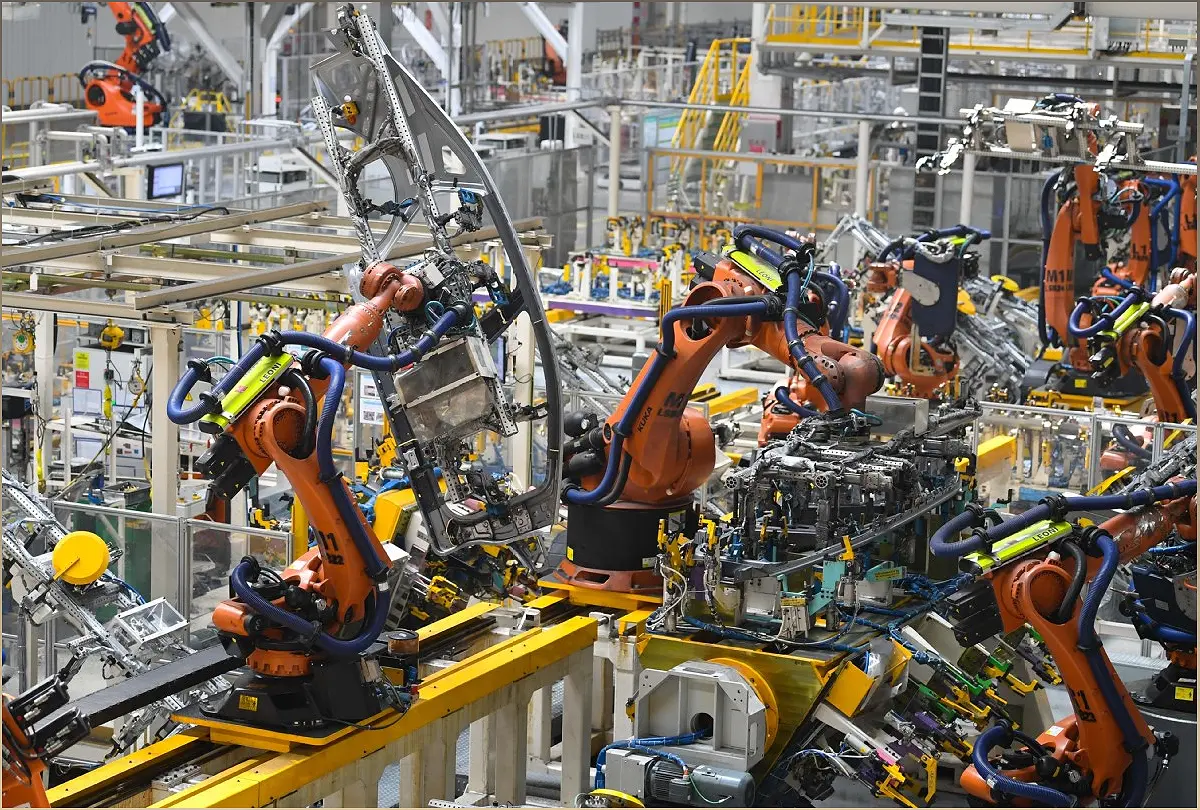In an automotive factory in Hefei, China, foreign automakers are harnessing the potential of the country's electric vehicle market. With the demand for new energy vehicles on the rise, global companies like Volkswagen and BMW are establishing localized supply chains and partnering with Chinese manufacturers. This article explores the strategies and collaborations that foreign automakers are employing to thrive in China's EV market.
Foreign Automakers Embrace China's EV Market
Learn how foreign automakers are capitalizing on China's booming electric vehicle market.
China's electric vehicle market is experiencing rapid growth, attracting the attention of foreign automakers. Companies like Volkswagen and BMW are establishing a strong presence in the country to tap into the increasing demand for new energy vehicles.
Volkswagen, for example, has adopted an 'in China, for China' strategy, partnering with local companies to create a localized supply chain. This allows them to cater to the specific needs and preferences of Chinese consumers.
By embracing China's EV market, foreign automakers are positioning themselves for success in one of the largest and fastest-growing electric vehicle markets in the world.
Partnerships with Chinese Manufacturers
Explore the strategic partnerships between foreign automakers and Chinese manufacturers.
Foreign automakers recognize the importance of collaborating with Chinese manufacturers to gain a competitive edge in the EV market. For instance, Volkswagen has partnered with Chinese EV startup Xpeng to co-develop electric cars.
These partnerships allow foreign automakers to leverage the expertise and technology of Chinese manufacturers, creating synergies that accelerate product development and market entry.
By joining forces, foreign automakers and Chinese manufacturers are driving innovation and shaping the future of the electric vehicle industry.
Localization and Supply Chain Integration
Discover how foreign automakers are localizing their operations and integrating with China's supply chain.
Foreign automakers understand the importance of localizing their operations to cater to the unique needs of the Chinese market. For example, Volkswagen has established a megafactory in Hefei and is building an industrial park to accommodate its upstream suppliers.
By integrating with China's supply chain, foreign automakers can streamline production processes, reduce costs, and ensure a steady supply of components. This localization strategy enhances their competitiveness in the Chinese EV market.
Through these efforts, foreign automakers are strengthening their presence in China and establishing a solid foundation for long-term success.
Expanding Production Capacity and Job Opportunities
Learn how foreign automakers are expanding production capacity and creating job opportunities in China.
Foreign automakers are not only capitalizing on China's EV market but also contributing to its growth. For instance, BMW has signed an agreement with a leading EV battery maker to purchase cylindrical cells for its new EV models.
These investments in production capacity not only meet the increasing demand for electric vehicles but also create job opportunities in China. This contributes to the local economy and supports the government's goal of transitioning to eco-friendly transportation.
By expanding production capacity, foreign automakers are playing a vital role in the development of China's electric vehicle industry.

